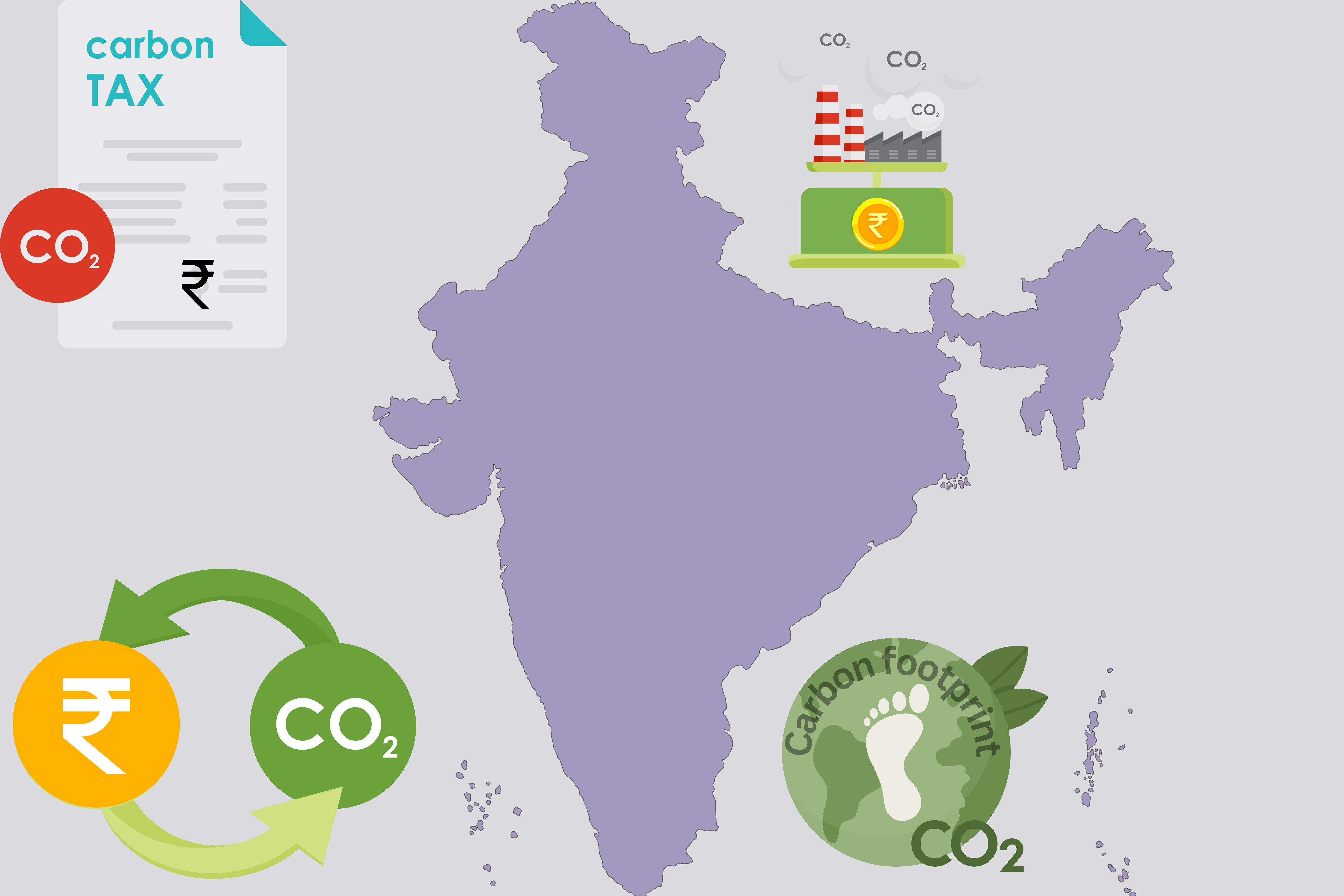Educating the Public on Climate Change: Building a Greener Future for India
A Carbon Tax for India: A Controversial Path to Cleaner Skies?
India, the world’s second-most populous nation, faces a monumental challenge: curbing its greenhouse gas emissions while ensuring continued economic growth. One potential solution gaining traction is a carbon tax – a levy on the carbon content of fossil fuels like coal, oil, and gas. While this policy has its proponents and detractors, a closer look reveals its potential to be a powerful tool in India’s fight against climate change.
The Case for a Carbon Tax: Why India Needs to Price Carbon
India’s reliance on fossil fuels for its energy needs is undeniable. Coal alone accounts for nearly 70% of India’s power generation. This dependence comes at a cost – rising carbon emissions.
Without significant intervention, India’s emissions are projected to double by 2050. This scenario poses a grave threat to the nation’s environment, public health, and economic future.
A carbon tax aims to address this challenge by creating a “polluter pays” principle. By putting a price on carbon emissions, the tax incentivizes businesses and consumers to shift towards cleaner energy sources. This could involve increased investment in renewable energy like solar and wind power, adoption of energy-efficient technologies, and a reduction in overall energy consumption.
Potential Benefits of a Carbon Tax in India
Emission Reduction: A well-designed carbon tax can be a powerful tool for reducing greenhouse gas emissions. Businesses would have a clear financial incentive to adopt cleaner technologies and processes to minimize their carbon footprint. This could be particularly effective in driving down emissions from coal-fired power plants, a major contributor to India’s carbon burden.
Promoting Innovation: A carbon tax would stimulate innovation in clean energy technologies. Companies would be incentivized to develop new and more efficient renewable energy solutions, leading to a long-term shift towards a sustainable energy sector.
Revenue Generation: The revenue collected from a carbon tax could be used to fund various initiatives. This could include investments in clean energy infrastructure, promoting energy efficiency programs, and supporting vulnerable communities affected by climate change.
Concerns and Challenges: Is a Carbon Tax the Right Fit for India?
Despite its potential benefits, a carbon tax proposal in India faces several challenges:
Impact on the Economy: A carbon tax could lead to an increase in energy prices, potentially impacting industries and households reliant on fossil fuels. Careful consideration is needed to design a tax structure that minimizes the economic burden on vulnerable sections of society.
Political Opposition: Powerful lobbies representing fossil fuel industries are likely to oppose any attempt to implement a carbon tax. Political will and public support will be crucial to overcome this resistance.
Equity Considerations: A carbon tax could disproportionately affect low-income households that spend a larger portion of their income on energy. Measures to mitigate this impact, such as carbon tax rebates for the underprivileged, need to be considered.
Alternatives to a Carbon Tax: Exploring a Greener Pathway
While a carbon tax is a viable option, it’s not the only path towards a cleaner future. Alternatives that could be explored alongside or even as substitutes include:
Cap-and-Trade Systems: These systems set a limit on total emissions and allow companies to buy and sell pollution permits. This approach can achieve emission reduction goals while providing flexibility to industries.
Subsidies for Renewables: Subsidies can make renewable energy more cost-competitive with fossil fuels, accelerating the transition to a clean energy future.
Energy Efficiency Standards: Implementing stricter energy efficiency standards for buildings and appliances can significantly reduce energy consumption and associated emissions.
The Way Forward: A Balanced Approach for a Sustainable Future
India’s fight against climate change requires a multifaceted approach. A carbon tax, if implemented thoughtfully and accompanied by social safety nets, can be a powerful tool for driving emission reductions and promoting clean energy solutions. However, it’s crucial to consider the needs of vulnerable communities and ensure a just transition away from fossil fuels. Exploring various options, including carbon tax alternatives, and fostering innovation in clean energy are equally important. Ultimately, embracing a sustainable future for India necessitates a collaborative effort involving policymakers, industries, and the public. By weighing the benefits and challenges, and engaging in open discussions, India can choose the path that best suits its unique needs, paving the way for a cleaner and more resilient future for all.
- Fur-Ever Friends Boutique: Tail-Wagging Treasures
- Critter Comforts and Beyond: Exploring the Expansive World of Pet Shops
- Paws, Claws, and Beyond: Navigating the Vast Realm of Pet Store Wonders




